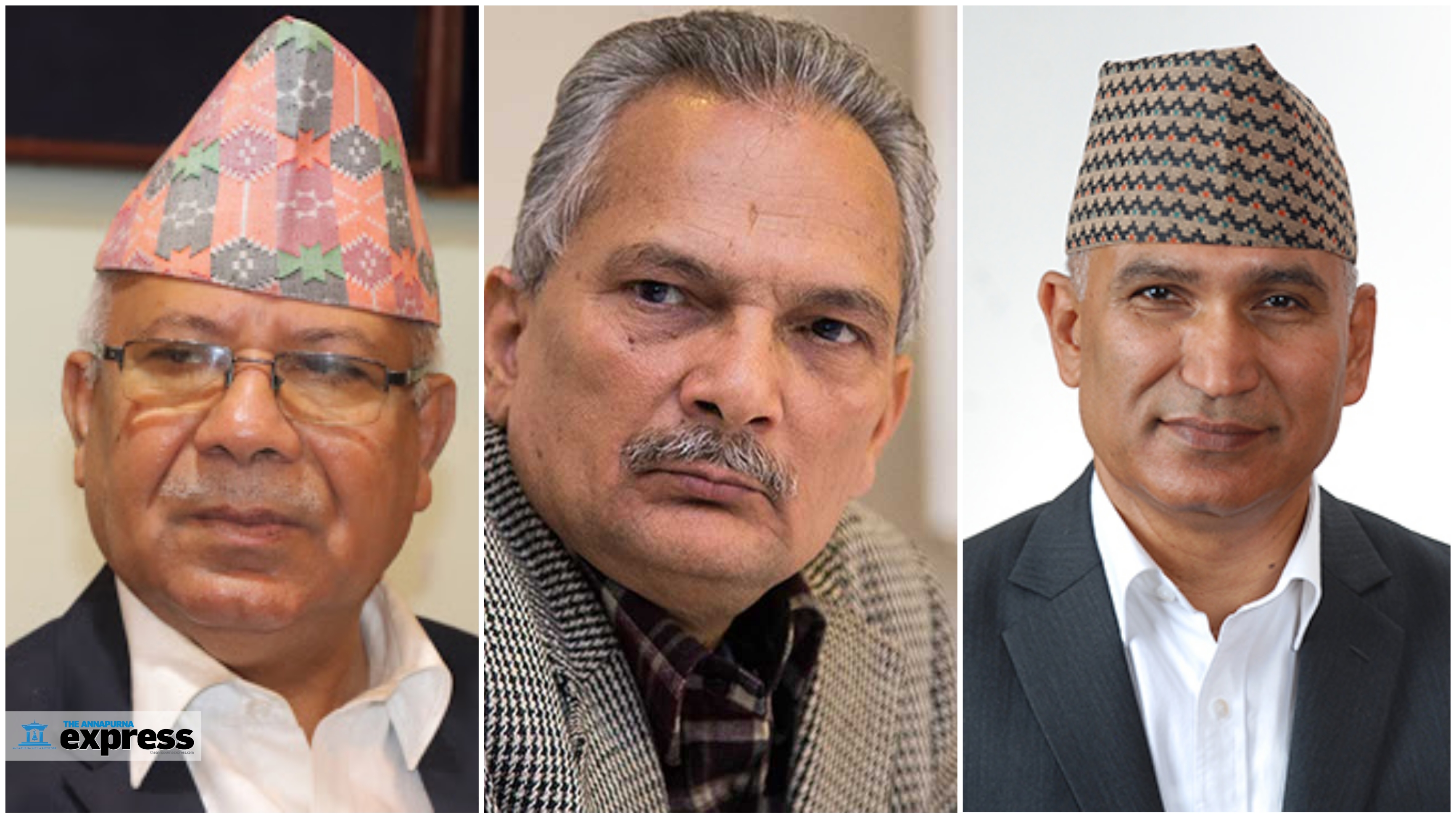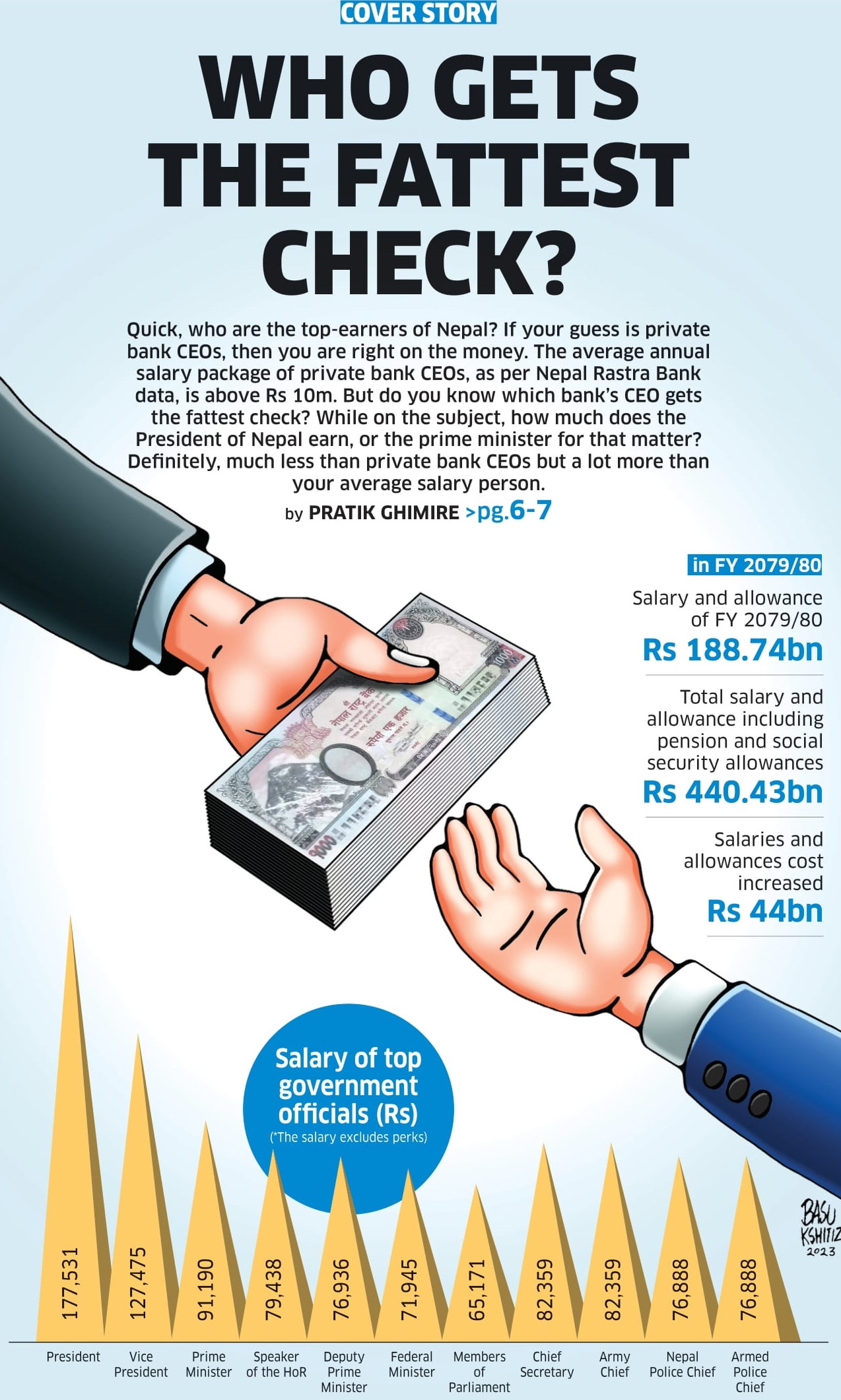As the Central Investigation Bureau (CIB) of Nepal Police reopens the files of Lalita Niwas land grab scam, all eyes are on ‘high profile’ political leaders who were allegedly involved in the case. As CIB continues to arrest more individuals for the investigation, some high-profile leaders have already left Kathmandu and it has caused unease among the politicians whose names were drawn in one of worst corruption scandals of past decades.
For instance, the CIB investigation forced former prime minister Baburam Bhattarai to come up with a long clarification claiming that he is not involved in the case. Other senior leaders are former prime minister Madhav Kumar Nepal, former Minister of Land Reform and Management Dambar Shrestha, CPN-UML Vice-chairperson Bishnu Paudel, and Supreme Court sitting Justice Kumar Regmi. The Commission for the Investigation of Abuse of Authority (CIAA) has already confirmed that the transfer of government land to individuals began during the tenures of Nepal and Bhattarai. Shrestha served as the land reform minister during Nepal’s premiership, and later, Paudel’s son Nabin Paudel bought land in the Lalita Niwas premises.
Even SC Justice Regmi purchased land there. The CIAA’s charge-sheet stated that the decisions made by Nepal and Bhattarai’s cabinets regarding the Lalita Niwas land case were collective policy decisions beyond their jurisdiction. According to the CIAA, Paudel and Regmi are not under its radar as they have pledged to return the land. However, the Nepal Police Spokesperson, Deputy Inspector General (DIG) Kuber Kadayat, mentioned that the CIB is investigating the case for forged documents and fake governmental stamps, not solely relying on the CIAA’s corruption investigation. “We, hence, don’t rely on CIAA’s investigation and nab everyone who is involved,” he says.
The CIB has already apprehended ten individuals, including Min Bahadur Gurung, the owner of Bhatbhateni Supermarket, and Sudhir Kumar Shah, a former election commissioner, in relation to the Lalita Niwas land grab case. The other individuals arrested were Kaladhar Deuja, Hupendramani KC, Surendra Kapali, Dharma Prasad Gautam, and Gopal Karki. Deuja, KC, and Kapali were released shortly after their arrest following a Supreme Court interim order that instructed authorities to investigate the individuals without holding them in custody. As of now, the CIB has nine individuals in their custody in connection with the Lalita Niwas scam. However, these seven individuals are not the only ones accused in this case.
The CIB has a list of over 400 suspected individuals. There are concerns that individuals should not evade punishment simply by returning unlawfully acquired property. The public has also expressed concerns about avoiding politicization of the case and ensuring a thorough investigation leading to punishment for the culprits.
Sharada Prasad Trital, the coordinator of the committee formed to study the Lalita Niwas land grab case, stated that the government land was systematically divided and distributed among individuals as if it were a gift. “The CIB has uncovered substantial evidence indicating potential involvement of individuals associated with political parties and their leaders, raising concerns about potential pressure on the police and the court to influence the investigation,” he says. Trital emphasized the need for impartiality and a conclusive outcome in the investigation, asserting that immunity should not be granted based on political affiliations. Both former prime ministers Nepal and Bhattarai have publicly proclaimed their innocence in this case.
Bhattarai took to Twitter to assert his innocence and stated that his cabinet made decisions following legal and ethical procedures, including on the Lalita Niwas land issue. Nepal has also been defending himself, claiming the allegations against him are false and has even said that he is ready to face punishment if found guilty. Former Nepal Police DIG
Hemanta Malla Thakuri says that no matter how much the police try to nab the so-called big fishes, without the support of the government, it is going to be difficult. “Nepal Police is just a small unit of a large system of Nepal which is driven by politics, bad politics actually,” he says. “All the political parties and media should pressurize the government for a better probe.”
Under the provisions of the Organized Crime Act, individuals found guilty of organized crime may face imprisonment of up to five years or a fine of up to Rs 500,000. Since the Lalita Niwas land grab case involves interconnected criminal activities, the police believe it falls under the purview of the Organized Crime Act. The severity of the punishment will depend on the level of involvement of each implicated individual. In cases of organized crime, the police have the authority to detain the accused for a maximum of 60 days to gather evidence, whereas the maximum detention period for other offenses is 25 days. Through collusion among leaders, high-ranking officials, and the land mafia, 143 plots of government land in Lalita Niwas were fraudulently registered in the names of individuals.













